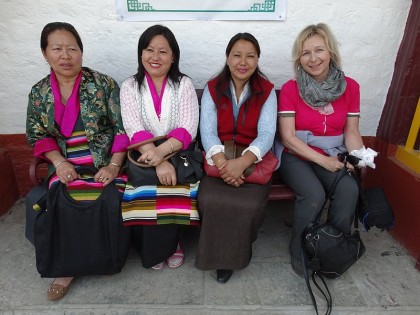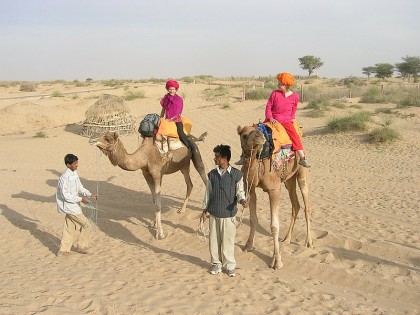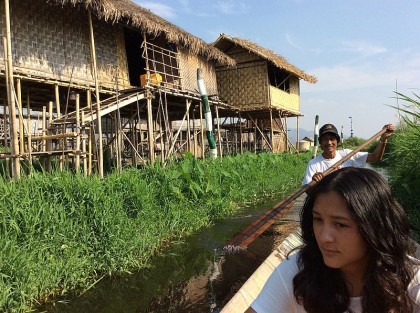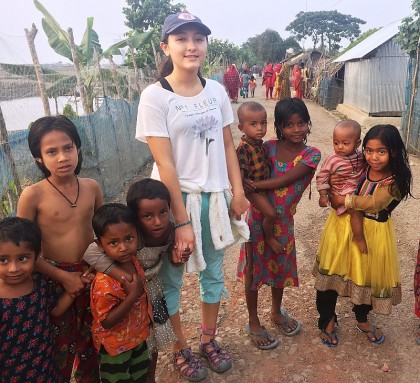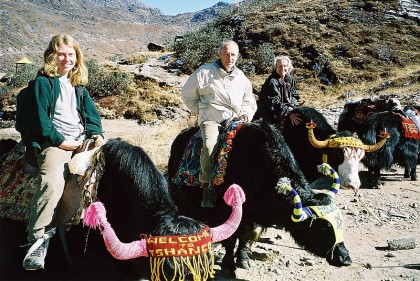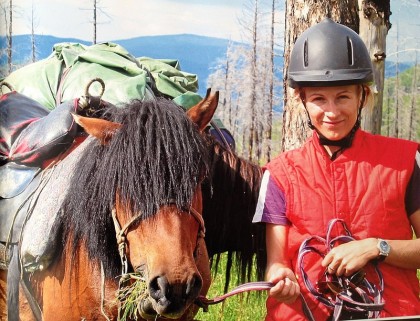
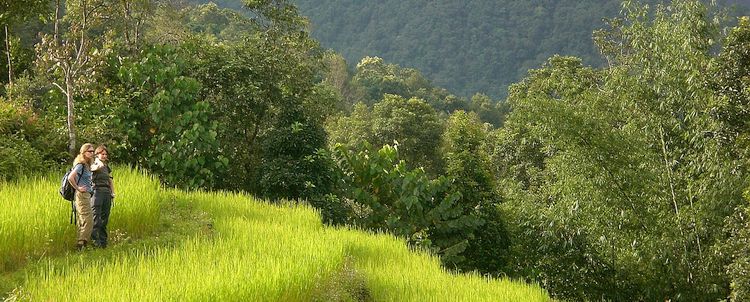

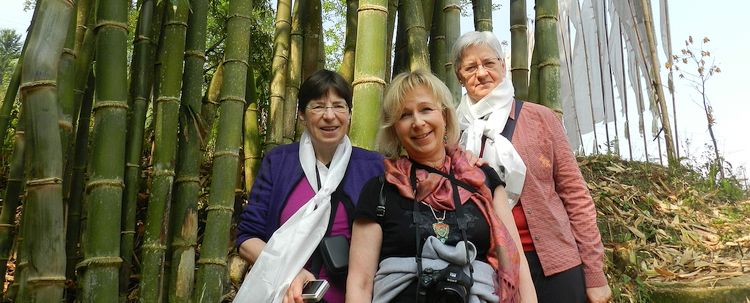
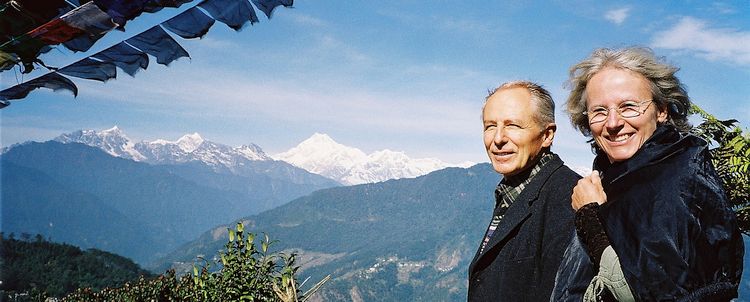
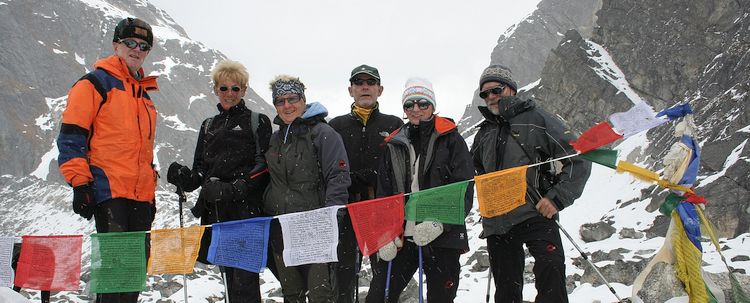
Pages Under this section
Cultural and Natural Diversity in Northeast India
Hornbill Festival, Tribal Villages and Kaziranga National Park, Round trip, 19 days
Introduction
Walk with us across the bridge to the Seven Sister states, which are all situated in the extreme northeast of India, and experience the unique patchwork of cultures of the native tribes which are settled here. They have largely been able to obtain their in each case very own lifestyle with individual traditions, thanks to the remoteness of the region, as well as due to the political isolation over the centuries, although the tribes are now living on different levels of civilization. The Hornbill Festival, which is held annually in Kohima, and in which all peoples of the region participate, represents a unique opportunity to witness historical ceremonies and dances, and admire the tribesmen in their traditional dress.
Our onward journey takes us from the world of legends, myths and nature spirits into the luxurious atmosphere of the colonial era on a tea plantation, before we dive back into the simple and secluded life of the tribal communities in the countryside, and their all the more amazing cultural diversity. The local peoples have abjured their head hunter past, but nevertheless each visit to one of these villages gives us today a hint of pioneering spirit and adventure.
After an exalted ride on elephant back through the Kaziranga National Park, which is world-famous for its plant and animal diversity, and the stay on the river island of Majuli, which is surrounded by the flowing waters of the mighty Brahmaputra river, the untouched nature of Northeast India shows herself in the Mawphlang Sacred Forest, which we traverse along the David Scott Trail. A round trip full of contrasts, which perhaps for this reason demonstrates so clearly the diversity of the local culture.
Highlights
- Visit to the Kisama Naga Heritage center and the Hornbill Festival taking place there
- Varied highland and mountain landscapes with small villages and terraced fields
- Visit a tea garden and get insights into the colonial life of around 100 years ago
- Exploration of native people's different tribal villages, insight into their specific, traditional culture
- Overnight on the river island of Majuli in midst of the mighty Brahmaputra
- Safari on elephant back at the Kaziranga National Park
- Hike in the silence of the Mawphlang Sacred Forest along the David Scott Trail
Travel Itinerary
Day 1 : Arrival at Dimapur Airport (176 m above sea level) in Nagaland and drive to Kohima (1590 m above
sea level). Overnight at hotel.
Day 2 : Visit of the Hornbill Festival in Kohima. Overnight at hotel.
Day 3 : Visit to the Hornbill Festival in Kohima. Overnight at hotel.
Day 4 : Drive to Jorhat (116 m above sea level). Overnight at Tea Estate Bungalow.
Day 5 : Drive on to Mon (2414 m above sea level). Overnight at hotel.
Day 6 : Excursion to Longwa on the border with Myanmar. Overnight at hotel.
Day 7 : Continue to Dibrugarh (108 m above sea level). Overnight at hotel.
Day 8 : Drive on to Aalo (619 m above sea level). Overnight at hotel.
Day 9 : Exploration of indigenous people‘s villages in the surroundings of Aalo. Overnight at hotel.
Day 10 : Drive on to Daporijo (2414 m above sea level). Overnight at hotel.
Day 11 : Continue to Ziro (1700 m above sea level), stopovers in native people's villages. Overnight at hotel.
Day 12 : Explorations in Ziro. Overnight at hotel.
Day 13 : Continue to the island of Majuli (85 m above sea level) in the Brahmaputra. Overnight in bamboo hut.
Day 14 : Explorations on Majuli. Overnight in bamboo hut.
Day 15 : Continue to Kaziranga National Park. Overnight in the safari lodge.
Day 16 : Safari at the Kaziranga National Park. Overnight in the safari lodge.
Day 17 : Drive on to Shillong (1496 m above sea level) with stops at Lake Umiam.
Overnight at hotel.
Day 18 : Excursion to the Mawphlang Sacred Forest, trek along the David Scott Trail. Overnight at hotel.
Day 19 : Drive to Guwahati airport, return flight.
Best Travel Period
In this region prevail pleasant weather conditions during the period from mid-February to mid-May, or from October to December. The Hornbill Festival takes place in the first week of December. Warning: Accommodations are only in very limited numbers available during the Hornbill festival, and it is necessary to register at least three to four months in advance!
Options
- Day 7: on the way from Mon to Dibrugarh visit to Hongphui and Wangla
- Day 8: on the way from Dibrugarh to Aalo detour to the village of Namphake
- Days 10-12: modification of the itinerary from Aalo over Mechuka, Adi Gallong and Memba back to Aalo, from there straight to Majuli
- Additional days 19 and 20: day trips starting from Shillong to Cherrapunjee and Mawlynnong

